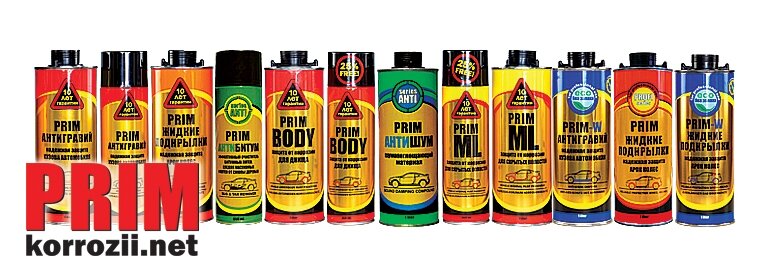Car Repair Quality Control Ensuring Proper Work
When you bring your car in for repairs, you expect more than a quick fix—you want lasting safety and dependable performance. Quality control in car repair isn’t just about checking boxes; it’s about ensuring every step meets strict standards. If you’ve ever wondered how repair shops maintain consistency and why it matters for your peace of mind, you’ll find the answers aren’t as straightforward as they might seem.
Importance of Quality Standards in Auto Repair
The establishment of quality standards in auto repair plays a key role in ensuring vehicle safety and reliability. Customers expect that services and repairs are performed to a high standard, which necessitates a focus on several critical factors.
First, it is important that technicians possess current training and utilize appropriate equipment. Regular training ensures that they are aware of the latest automotive technologies and repair techniques, which can directly affect the quality of their work. Certification programs and adherence to quality control practices further reinforce trust between customers and auto repair shops, as they indicate that the shop meets or exceeds industry benchmarks.
Moreover, effective communication within the repair team can facilitate a more thorough understanding of customer needs and concerns. This can lead to a more efficient service process, ultimately enhancing customer satisfaction.
Additionally, the implementation of robust control processes, along with the collection of customer feedback, allows repair shops to maintain detailed records of services provided. This data is instrumental for identifying trends, areas for improvement, and ensuring a commitment to continuous improvement.
Such practices underscore a proactive approach to delivering quality service consistently.
In summary, maintaining quality standards in auto repair is essential for fostering customer trust, ensuring safety, and providing a satisfactory experience.
Establishing Effective Quality Assurance Processes
Establishing effective quality assurance processes is essential for achieving reliable outcomes in an auto repair shop. Prior to initiating any repairs, conducting a thorough vehicle check is a crucial step. This initial assessment ensures that all aspects of the service are performed according to established standards.
The implementation of control practices, such as utilizing digital tools and maintaining comprehensive records, contributes to operational efficiency and enhances customer trust. These systems not only streamline workflow but also provide a transparent process for tracking service history and quality metrics.
Consistent training programs and ongoing technical updates for personnel are important for fostering an environment of continuous improvement. This approach allows technicians to stay current with advancements in automotive technology and repair techniques, ultimately improving service quality.
Furthermore, encouraging open communication within the team and actively addressing customer feedback can enhance the overall customer experience. Quality control processes play a critical role in ensuring customer satisfaction, aligning repair services with the stringent expectations of the automotive industry.
Through these measures, auto shops can effectively meet the demands of their clientele while maintaining high standards of service quality.
Key Certification Programs and Industry Benchmarks
Certification programs play a critical role in establishing quality standards within the auto repair industry. They provide comprehensive guidelines that benefit both technicians and shop owners. Adhering to certifications such as ASE (Automotive Service Excellence) or I-CAR (Inter-Industry Conference on Auto Collision Repair) ensures that repair processes align with recognized industry benchmarks.
These certification programs typically mandate ongoing training, the utilization of approved equipment, and effective communication among team members. By documenting and controlling repair practices rigorously, repair shops can demonstrate meticulous attention to vehicle servicing. This level of diligence not only fosters trust among customers but also contributes positively to overall customer satisfaction.
Moreover, obtaining and maintaining certification can be viewed as an initial step in a shop's commitment to quality and customer service. This commitment can translate into operational efficiencies, help attract a steady stream of customers, and ultimately bolster the repair shop's reputation within the competitive automotive industry.
Overall, certification serves as a foundational element in promoting high standards and best practices in auto repair services.
Common Practices for Quality Control in Repairs
Establishing effective quality control in auto repairs requires a systematic approach grounded in practical measures aimed at meeting industry standards. Implementing checklists throughout the repair process ensures that technicians adhere to required procedures and standards.
Utilizing original equipment manufacturer (OEM) parts, along with appropriate tools, is essential for maintaining the vehicle’s integrity and fostering customer trust. Encouraging open lines of communication through customer feedback can provide insights into service quality while also highlighting areas for improvement.
Keeping comprehensive records facilitates efficiency and supports quality assurance efforts. Conducting thorough pre-paint inspections, in conjunction with ongoing training and certification programs for staff, promotes a culture of continuous improvement within the shop.
In essence, maintaining quality service hinges on consistent control processes and the careful tracking of customer experiences, all contributing to enhanced satisfaction and loyalty. For further information, consider reviewing our Privacy Policy and Press Releases.
The Role of Staff Training and Development
Investing in staff training and development has a measurable impact on the quality of auto repairs delivered at an automotive shop. Ensuring that all services performed meet established industry standards is critically dependent on comprehensive training programs. Participation in certification programs enhances the technical competencies of your team, which can subsequently foster customer trust and support marketing initiatives.
Ongoing education is essential for promoting continuous improvement within the workplace. It reinforces established control practices that contribute to operational efficiency.
Encouraging open communication and peer learning among staff facilitates the sharing of best practices, which can be instrumental in saving time and maintaining consistency in customer experiences.
It is also important to confirm that employees are proficient in the operation of equipment and meticulous in record-keeping. A well-trained team is adept at addressing both vehicle and customer needs, which can help transform customer feedback into improved service quality.
Overall, systematic staff training and development play a pivotal role in enhancing the operational effectiveness of an auto repair shop.
Managing Parts, Equipment, and Repair Procedures
Effective management of parts, equipment, and repair procedures is essential for achieving high-quality car repairs. Auto shops should prioritize the use of OEM (Original Equipment Manufacturer) parts to ensure compatibility and reliability. Regular maintenance of equipment is crucial to prevent breakdowns and ensure safety and efficiency during repairs.
Standardized control practices should be implemented to monitor every step of the repair process. This includes maintaining detailed records of all technical aspects and monitoring any sublet services used for servicing vehicles. Reliable suppliers are integral to maintaining quality, and engaging with industry news can help shops stay informed about best practices and emerging trends.
Supporting continuous improvement through training and certification programs enhances the skills of the workforce and thereby improves service quality. Documentation of procedures not only streamlines operations but also contributes to an enhanced customer experience by reducing errors and improving response times.
Moreover, marketing and press releases serve as tools to communicate a shop's dedication to customer satisfaction. It is essential to adhere to control processes and maintain data privacy, ensuring that detailed records are kept in line with industry standards and regulatory requirements.
This approach not only protects consumer rights but also reinforces the integrity of the services provided.
Enhancing Customer Trust Through Communication and Feedback
Effective communication throughout the repair process is crucial for fostering customer trust and confidence. It is important to thoroughly explain each step of the auto service, including any technical estimates and potential adjustments to the original plan.
Gathering customer feedback post-repair is an essential practice that enables the team to pursue continuous improvement and adapt operational strategies to better align with customer expectations.
Maintaining detailed records of the services provided not only enhances transparency but also contributes positively to the overall customer experience. Participation in certification programs, regular equipment checks, and attention to detail in every repair demonstrate a commitment to quality and reliability.
In addition, tracking customer suggestions and sharing relevant updates, such as News and Press Releases, can help maintain open lines of communication.
Protecting customer privacy remains paramount, as customer satisfaction is fundamentally tied to trust in the service provider. Implementing these practices can significantly strengthen customer relationships and promote long-term loyalty.
Conclusion
By prioritizing quality control in your car repair shop, you’re not just ensuring each job meets safety and reliability standards—you’re also building trust with your customers and protecting your business’s reputation. With consistent inspections, thorough staff training, and attentive customer feedback, you can minimize errors and deliver durable results. Investing in technology and upholding industry certifications keeps your team ahead of the curve, so your shop stands out for its dependable, high-quality service every time.








